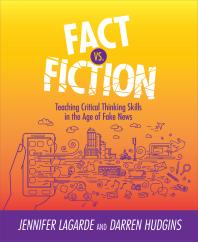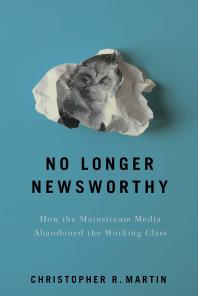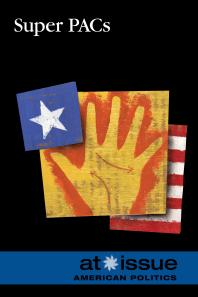


Need research or homework help and cannot come to the library? No problem! Type your question in the chatbox below, call the reference desk, send a text, or email and a library professional will respond to you shortly after, during our normal hours. If you submit your question outside of regular hours, we will respond as soon as possible when we return the following business day. Our subject-specific research and study guides can be very helpful,l as well.
Check out our list of subject librarians if you have a subject-specific question and want to contact a librarian directly, who also often respond even after the regular chat and text hours. However, this is not guaranteed. The faculty and staff at CSU Libraries can be fairly flexible in meeting you virtually or one-on-one to assist you in your academic goals and pursuits.

GIL-Find is CSU Library's Catalog
Having trouble finding keywords? Here are some suggestions for researching information related to elections:
The Presidential Elections page provides a wealth of information specifically related to presidential campaign research.
The Congressional Elections page provides more specific information related to congressional campaign research.
The Campaign Finance page of this guide contains additional and more specific campaign finance information such as legal resources, books, and various types of web sources.
Datasets, Polling, and Statistics can help with finding data information related to specific campaigns.
Full video coverage of the Democratic and Republican parties' national conventions, 2000–present. Includes some coverage from 1984 and 1996 as well as some third-party conventions (e.g., Reform Party in 2000, Libertarian in 2016).
Library of Congress - Archive of Campaign Websites
Published by the Library of Congress, this link will take you to a collection of archived websites from state and federal campaigns.

This work is licensed under a Creative Commons Attribution-NonCommercial-ShareAlike 4.0 International License.
This page contains CSU Libraries' Resources available to faculty, students, and staff. Here you will find tons of information sources which include databases, the library catalog, book suggestions, and more. Be sure to check out the other tabs of this guide for more information on specific areas and topics related to elections.
Please feel free to contact me at any time. I'm here to help!
The ERA, hosted by SUNY-Binghamton's Center on Democratic Performance, contains results from legislative and presidential elections from 1974 onwards for countries that meet a minimum threshold of democratic governance.
A full set of biographies about each President of the United States.
Presidential Libraries provide a broad range of educational opportunities for students of all ages. Each Presidential Library offers programs designed to introduce students to American history and the Presidency and to inform teachers about the use of primary source documents in teaching history.
Find biographies of members of the U.S. Congress from 1774 to the present.
An encyclopedia where you can look up terms and names related to the U.S. and International government and politics. You can also find the latest news on a variety of topics, especially ones related to elections. Type a name in their search box and get tons of biographical information.
Links to information on current officials and candidates.
A portal to government and non-profit websites that list current federal and state elections and also provide information about the candidates.
Collecting election data compiled by the staff of the Daily Kos of presidential general election returns and some statewide returns (e.g., governor, senator, state attorney general, etc.) broken down by congressional district, state legislative district, and media market. Data in Google sheets.
This site contains constituency (state-level) returns for elections to the U.S. presidency from 1976 to 2016 and county-level returns for presidential elections from 2000 to 2016.
A New Nation Votes is a searchable collection of election returns from the earliest years of American democracy. The data were compiled by Philip Lampi. The American Antiquarian Society and Tufts University Digital Collections and Archives have mounted it online for you with funding from the National Endowment for the Humanities.
Nonpartisan project based at GWU documenting the presidential campaigns from 2000-2016. Especially useful for extensive information about general elections and primary campaign organizations for the major candidates. The basis for a dataset coding field offices by county for 2004–2008 (Democrat) and 2012 (Democrat and Republican).
From the Pew Research Center, the Elections Performance Index, or EPI, is the first comprehensive assessment of election administration in all 50 states and the District of Columbia. Using data from 17 key indicators, the EPI makes it possible to compare election administration policy and performance across the states and from one election cycle to the next. The index presented here is based on 2008, 2010, 2012, and 2014 elections.
November supplement of the Current Population Survey (CPS) provides results on reported voting and registration in presidential and congressional elections broken down by various demographic and socioeconomic characteristics down to the state level. Does not include reported partisan votes. Detailed tables in Excel or .csv, including historical time series from the 1960s–.
National and state turnout rates for the voting-eligible population (VEP) and voting age population (VAP) for the 1980-present November general elections. Also, national turnout rates for presidential and midterm general elections, 1787-2012. Data in Excel format. Some years have primary figures as well. Compiled by Prof. Michael McDonald of the University of Florida.
A 50-state list providing details on voter registration list data availability, permitted uses, cost, and links to state election sites for requesting.
Comprehensive turnout statistics for general and primary elections for presidential, congressional, and state gubernatorial races. Extensive tables provide state-level figures (including partisan turnout) grouped by office or election type in 20-year chunks. It also includes chronologies of major events and election law changes affecting turnout. Data in Excel or .csv.
Dr. Michael McDonald, an Associate Professor at George Mason University, provides national and state voter turnout statistics from 1980 to the present.
See the Statistics, Datasets, and Polling tab of this guide. Be sure to see the Public Opinion & National Polling Information section of the page.
Below are selections of ebooks related to misinformation and fact-checking. Titles also delve into topics related to media bias and its effects.
Click on the  for more information on the title. Content of all titles is accessible to CSU Faculty, Staff, and Students only.
for more information on the title. Content of all titles is accessible to CSU Faculty, Staff, and Students only.
 Fact Vs. Fiction : Teaching Critical Thinking Skills in the Age of Fake News by Jennifer LaGarde and Darren Hudgins
The advent of the 24-hour news cycle, citizen journalism and an increased reliance on social media as a trusted news source have had a profound effect not only on how we get our news, but also on how we evaluate sources of information, share that information and interact with others in online communities. When these issues are coupled with the “fake news” industry that intentionally spreads false stories designed to go viral, educators are left facing a new and challenging landscape. This book will help them address these new realities. Fact vs. Fiction provides educators with tools and resources to help students discern fact from fiction in the information they access not only at school, but on the devices, they carry in their pockets and backpacks.
Fact Vs. Fiction : Teaching Critical Thinking Skills in the Age of Fake News by Jennifer LaGarde and Darren Hudgins
The advent of the 24-hour news cycle, citizen journalism and an increased reliance on social media as a trusted news source have had a profound effect not only on how we get our news, but also on how we evaluate sources of information, share that information and interact with others in online communities. When these issues are coupled with the “fake news” industry that intentionally spreads false stories designed to go viral, educators are left facing a new and challenging landscape. This book will help them address these new realities. Fact vs. Fiction provides educators with tools and resources to help students discern fact from fiction in the information they access not only at school, but on the devices, they carry in their pockets and backpacks.
 No Longer Newsworthy by Christopher R. Martin
Until the recent political shift pushed workers back into the media spotlight, the mainstream media had largely ignored this significant part of American society in favor of the moneyed "upscale" consumer for more than four decades. Christopher R. Martin now reveals why and how the media lost sight of the American working class and the effects of it doing so. The damning indictment of the mainstream media that flows through No Longer Newsworthy is a wakeup call about the critical role of the media in telling news stories about labor unions, workers, and working-class readers. As Martin charts the decline of labor reporting from the late 1960s onwards, he reveals the shift in news coverage as the mainstream media abandoned labor in favor of consumer and business interests.
No Longer Newsworthy by Christopher R. Martin
Until the recent political shift pushed workers back into the media spotlight, the mainstream media had largely ignored this significant part of American society in favor of the moneyed "upscale" consumer for more than four decades. Christopher R. Martin now reveals why and how the media lost sight of the American working class and the effects of it doing so. The damning indictment of the mainstream media that flows through No Longer Newsworthy is a wakeup call about the critical role of the media in telling news stories about labor unions, workers, and working-class readers. As Martin charts the decline of labor reporting from the late 1960s onwards, he reveals the shift in news coverage as the mainstream media abandoned labor in favor of consumer and business interests.
Be sure to check the Fact-Checking 2020 Election Topics in the News box of the 2020 Presidential Election page of this guide for additional fact-checking resources, especially in relation to fact-checking election information. Other helpful boxes on that page are the Snopes.com Fact-Checking Feed and the Fact-Check.org Feed.
Published by the Congressional Research Service (CRS).
Provides information on proposed legislation and other legal aspects of campaign finance, elections, political communication, ethics, etc.
 Super PACs by Louise I. Gerdes (Editor)
The passage of Citizens United by the Supreme Court in 2010 sparked a renewed debate about campaign spending by large political action committees, or Super PACs. Its ruling said that it is okay for corporations and labor unions to spend as much as they want in advertising and other methods to convince people to vote for or against a candidate. This book provides a wide range of opinions on the issue. Includes primary and secondary sources from a variety of perspectives; eyewitnesses, scientific journals, government officials, and many others.
Super PACs by Louise I. Gerdes (Editor)
The passage of Citizens United by the Supreme Court in 2010 sparked a renewed debate about campaign spending by large political action committees, or Super PACs. Its ruling said that it is okay for corporations and labor unions to spend as much as they want in advertising and other methods to convince people to vote for or against a candidate. This book provides a wide range of opinions on the issue. Includes primary and secondary sources from a variety of perspectives; eyewitnesses, scientific journals, government officials, and many others.
This site presents information developed by Caltech and MIT intended to improve the technical aspects of the United States voting system. It includes the full text of their report, Voting-What Is, What Could Be.
Site of the Center for Voting and Democracy, a nonpartisan organization "that supports fair elections and studies how voting systems affect participation, representation and governance".
In-depth non-partisan information on initiative and referendum issues. Concentrates on the U.S. but with some international coverage.
The non-partisan, non-advocacy organization provides up-to-the-minute news and analysis on election reform. See their resource library for more information on the Help America Vote Act (HAVA). Their interactive map lets one see the numbers of registered voters, voting age population, voting system used, etc.
***See the Campaign Finance tab of this guide for more specific information for election research related to campaign finance.
Court documents can be found in several ways; however, often, there is a processing fee, even to view online. Below are two organizations that provide court documents for current election litigation for federal and state election law-related cases, free of charge.
Founded in 2020, Democracy Docket is a reliable source of news that delivers detailed analysis and expert commentary on voting rights, election litigation, and policy that will shape our elections and democratic institutions for years to come.
With a comprehensive database of over 650 cases, Democracy Docket tracks and reports on the latest election and voting-related litigation, providing filings, in-depth analysis, and up-to-date developments about court proceedings.*
Started in 2010, Free Law Project is the leading 501(c)(3) nonprofit using technology, data, and advocacy to make the legal ecosystem more equitable and competitive.**
*From Democracy Docket's About Page
** From the About Court Listener page
The American Presidency Project at the University of California, Santa Barbara, presents the electoral and popular vote results from 1789. Additional presidential election-related data is also provided, such as voter turnout, Gallup Poll accuracy, representation of the president's party in House elections, and popular and electoral vote mandates.
"The mission of the American National Election Studies (ANES) is to inform explanations of election outcomes by providing data that support rich hypothesis testing, maximize methodological excellence, measure many variables, and promote comparisons across people, contexts, and time."
Founded in 1950, it develops and promotes the study of politics. The Association is affiliated with the International Political Science Association and represents its members on the Council of that body.
provides integrated teaching, research, and study program focusing on Congress and the presidency and the interactions of these two fundamental American institutions. Its projects include a federal election project, improving campaign conduct, etc.
It is a collaborative program of cross-national research among election studies conducted in over fifty states.
International Foundation of Electoral Systems
A non-profit NGO provides professional advice and technical assistance in promoting democracy and serves as an information clearinghouse on elections, the rule of law, governance, and civil society.
Center for American Women in Politics
Source of scholarly research and current data about American women’s political participation. This site presents data and analysis of women's voting behavior, including statistics on turnout and the gender gap in voting.
Know the laws that protect your right to vote and govern the election process. Find results of past federal elections. Learn how voting methods and habits have evolved.
Find information for every election in the United States, notable speeches, campaign information, and more. Compiled and published by the Library of Congress.
Find out more about how elections for Vice Presidency have changed over the years from the U.S. Senate.
Book of the States: Gubernatorial Campaigns
Chapter 4 on the State Executive Branch includes an annual article on gubernatorial elections that discusses key campaigns and has tables of statistics on the cost of campaigns, 1970–present.
Preserves campaign websites of declared candidates running for state elective offices. Beginning in 2018, the initiative preserved state legislative campaign content and websites for candidates in states with an Ivy Plus Libraries Confederation institution — California, Connecticut, Illinois, Maryland, Massachusetts, New Hampshire, New York, North Carolina, Pennsylvania, and Rhode Island — with the hope of adding additional states and / or other subnational elective offices as resources permit.
Films On Demand is available to faculty and students that contain video content on hundreds of topics and disciplines.